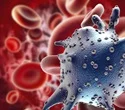The Role of Analytical Chemistry in Industry and Manufacturing
Industry and the manufacturing sector use multiple analytical chemical methods, whether for new product development, processing, or quality control. This article outlines the research to be presented at Pittcon on the advances being made in analytical chemistry and their application in industry and manufacturing. Spectroscopy is a valuable analytical tool for a wide range of sectors. Several talks will focus on Raman spectroscopy as a highly versatile analytical tool, which can be used in chemical processing from laboratory to manufacturing. Raman spectroscopy’s use in polymer science to measure and control chemical processes is a particular focus. The technique is becoming increasingly relevant as chemical manufacturing expands to include new developments such as batch reactions, microreactors, flow synthesis, and continuous processes. Pittcon will hear examples of using Raman spectroscopy to improve process efficiency and predict reaction end-times and physical properties of chemical...





Comments
Post a Comment